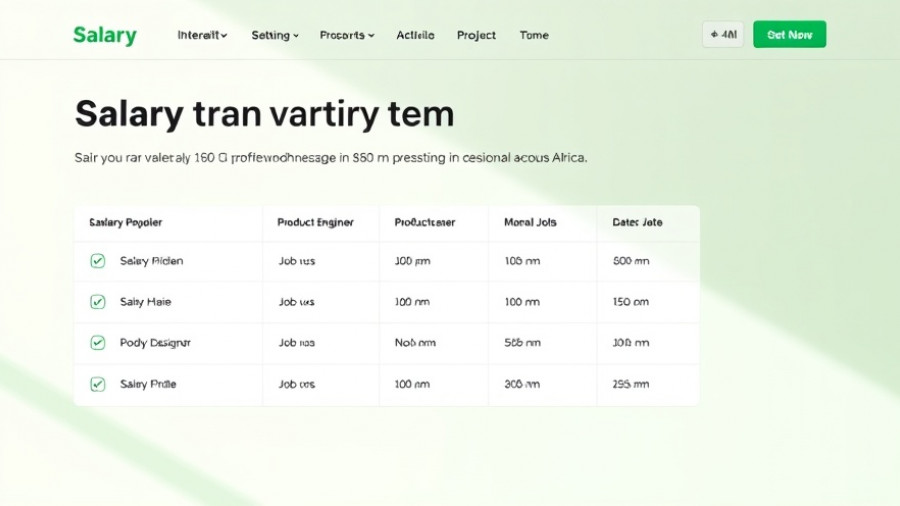
Tech Talent Race: Understanding the Shift in Banking
Nigeria's banking sector is undergoing a seismic shift as leading banks like First Bank and GTBank ramp up their hiring of technology professionals. This significant move highlights the growing importance of tech innovations in maintaining a competitive edge within the industry. As digital services continue to overshadow traditional banking practices, these institutions are responding to the demand for enhanced customer experiences.
The Rise of Digital Banking Channels
According to a recent survey by KPMG, a remarkable 70% of Nigerian banking customers use mobile banking regularly, a notable increase from 55% just a year prior. This drastic shift has propelled banks to re-evaluate their service delivery, emphasizing the urgent need for top tech talent. While First Bank is actively listing multiple roles, including software developers and DevOps engineers, GTBank's current hiring appears aligned with a critical update to its core banking system that previously inconvenienced customers.
The Hiring Landscape: Banks vs. Fintechs
The competition for tech talent isn't solely among traditional banks. Fintech startups such as Moniepoint have emerged as formidable challengers, luring top talents away from established financial institutions. Whether it's the promise of higher salaries or a more innovative work environment, fintechs are raising the bar for what tech professionals expect from their career. Surveys reveal that tech professionals often prefer the flexibility and creative culture offered by fintechs compared to the more rigid structures of traditional banks.
Investing in Future Technologies for Stability
As traditional banks like First Bank and GTBank embark on significant investments, projected spending on core banking software may exceed ₦82 billion. This investment does not simply promise efficiency; it signifies a firm commitment to future-proofing operations as more Nigerians turn to digital-first solutions for their banking needs. Retaining existing tech talent has also taken a front seat, with reports indicating GTBank has taken substantial measures, including salary increments, to deter staff turnover amid a challenging hiring landscape.
The Future Thought: What Lies Ahead?
As the battle for tech talent intensifies, both banks and fintechs will need to address the evolving needs of their workforce. Creating vibrant workplace cultures, offering attractive compensation packages, and embracing innovation will be crucial strategies for attracting and retaining tech professionals. The rapid adoption of technologies within banking suggests we are at the precipice of a new era in financial services, one that embraces the transformative power of digital solutions to drive customer satisfaction and engagement.
 Add Row
Add Row  Add
Add 


Write A Comment